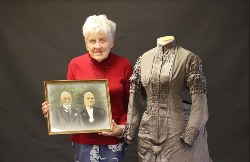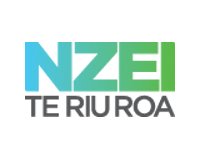Infant Formula Advice Strengthened
Infant Formula Advice Strengthened
The Ministry of Health and the New Zealand Food Safety Authority have strengthened advice to hospital neonatal units and reinforced advice to parents and health professionals about preparation and storage of infant formula.
This follows the death of a premature baby linked to bacteria which may be found in both the environment and in powdered formula.
Ministry of Health Chief Advisor Child and Youth Health Dr Tuohy says the Ministry and Food Safety Authority wish to reduce the risk of other premature babies dying from the bacteria called Enterobacter sakazakii.
Enterobacter sakazakii is a bacteria reported internationally as being commonly found in both the environment and at very low levels in infant formula.
Hospital neonatal units have been advised that premature babies who are not breast fed should now be fed ready-made liquid formula instead of powdered milk formula. Ready-made liquid formula is sterilised in the bottle, which means there is far less risk of infection for premature babies given this formula.
Health authorities have in the past recommended to parents and caregivers that infant formula be stored in the fridge for a maximum of 24 hours after preparation. While that still remains an accepted time internationally, and is the advice printed on infant formula labels , it is now recommended that, as a precaution, that powdered infant formula should be prepared immediately before feeding, and that caregivers only prepare the amount they need for baby’s feed.
That strengthened advice will be provided to health professionals who in turn provide advice to parents on preparing infant formula for babies.
Dr Pat Tuohy says staff at the Ministry and the Food Safety Authority would like to express their sympathy for the family affected by the death.
He says the family have advised their paediatrician that they wish to grieve for their baby privately and have asked their request for privacy be passed on to the media.
NZ Food Safety Authority Principal Advisor Donald Campbell says that although the milk used in powdered infant formulas is pasturised, the powder is not able to be sterilised, as sterilisation would effectively remove a number of nutrients that are needed for baby's development.
He says that means that there is a risk that some bacteria, which can be present in the formula in very small amounts, which when mixed with water and stored above 4 degrees Celsius can grow to a level able to cause sickness, and in extreme cases death.
Dr Campbell says the risk to full term, healthy babies is regarded as extremely low. However the risk to premature, low birth weight or very sick babies, while still low, is higher.
"While the risk from Enterobacter sakazakii is generally regarded as extremely small, particularly for full term healthy babies, it's timely for both the Ministry and the Food Safety Authority to remind parents and health professionals of the precautionary steps they can take to reduce this risk.
This advice includes:
- breastfeed. Breast is best!! Breast-milk contains all the nutrition newborn babies need and breastfeeding benefits both the mother and the baby
- if infant formula is the only option, it is now recommended that dairy-based infant formula be used. When preparing powdered infant formula parents should only prepare the amount needed for baby’s feed, and it should be prepared as close as possible to feeding time
- If babies are premature, have a low birth weight (less than 2.5kg) or are sick enough to have been admitted to a hospital neonatal unit, then breast milk is best for these babies too, but some may need formula or additional milk powder added to their mother's expressed breast milk.
- if not breastfed, these babies should be fed ready-made liquid formula instead of powdered milk formula. Ready-made liquid formula is sterilised in the bottle, which means there is far less risk of infection for babies given this formula. Ready to feed liquid formula is only supplied to hospitals.
- If no alternative to powdered formula is available for higher risk babies then strict preparation and administration guidelines should be followed to minimise infection risk. Parents of premature babies should seek advice from their neonatal unit staff.
Dr Tuohy says that any parents or caregivers seeking advice about infant formula should contact their midwife, plunket nurse or GP.
For more information contact:
http://www.nzfsa.govt.nz
http://www.moh.govt.nz/media.html
Questions and answers
Q Why these new recommendations?
A Recently there has been concern internationally about Enterobacter sakazakii in powdered infant formula. This advice is provided to assist parents and caregivers.
Q What is Enterobacter sakazakii?
A It is a bacteria which is found in the environment and can sometimes contaminate food, and this includes powdered infant formula. The bacteria may be present in the powder on purchase or can be introduced at the time of preparation. Using safe methods of preparation and storage of the formula will reduce the risk of illness.
See detailed Guidelines for Preparing Infant Formula Safely attached below.
Q How large is this risk?
A In the last 20 years, there have been approximately 50 cases reported worldwide of Enterobacter sakazakii infection in infants under 60 days old. Although infection is rare, infection has resulted in serious illness and death.
Most of the infants reported to have this infection were premature (born more than 1 month early) or low birth weight (under 2.5 kg or 51/2 pounds), and almost all were in a Neonatal Intensive Care Unit. Infants with impaired immunity are also at increased risk.
Recently a baby in a New Zealand neonatal intensive care unit died from Enterobacter sakazakii infection, which may have come from a powdered infant formula.
Q Are full-term, healthy infants at risk?
A The infants at higher risk are premature or low birth weight infants. There have been a few cases of this infection in previously healthy full-term infants however the risk is extremely low in these babies.
Q How can the risk of Enterobacter sakazakii infection be reduced in my formula-fed baby?
A Powdered infant formula has been pasteurised (heat treated) but is not sterile (treated to kill all bacteria). If you are using powdered formula you should prepare only the amount of formula required for your baby’s feed, and prepare it as close as possible to the feeding time.
Ready to feed liquid formula used in hospital neonatal units is sterile. Ready to feed liquid formula is only supplied to hospitals.
Guidance for Preparing Infant Formula Safely
Before making up the formula:
- Make sure the powdered formula is stored in a clean dry place. Keep the formula covered, and check the use-by date. Use the powder within 4 weeks of opening the tin. Uncovered formula can become contaminated by bacteria or viruses being carried in on dust particles in the air or in the environment or workplace.
- Sterilise bottles and teats (ask your Lead Maternity carer, Well child nurse or chemist for more information on how to do this if you’re not sure).
- For at least the first 3 months, all water (including bought water) used to make up formula should be boiled and cooled on the day it is used. Boil for 3 minutes on the stove top or until an automatic kettle switches off. Keep boiled water covered while it cools and until you need to use it. . Water from tanks or bore holes should still be boiled and cooled for babies and toddlers until they are about 18 months old. Unboiled water and unsterilised bottles can carry bacteria that can make baby ill.
Mixing the Formula:
- Always wash your hands thoroughly before preparing bottle feeds. Keep everything you use to make up baby’s feeds clean. Be especially careful in the first 3 months.
- Make up the formula carefully using the boiled, cooled water you have already prepared and following the instructions on the packaging exactly. Infant formula is balanced for baby’s nutritional needs, a stronger or weaker formula can harm baby. . If baby is hungry and demands more, give more formula at each feed or give them an extra feed. Do not alter the formula strength.
- We recommend that you only prepare the amount you need for baby’s next feed, and that you prepare it as close as possible to feeding time.
Warming the Formula
- Formula can be heated by placing the bottle in a container of hot water.
- Microwaves can heat unevenly. If using a microwave, prepare the milk in a clean jug and pour it into the bottle before use, or at least shake the milk thoroughly after heating and leave to stand for 2-3 minutes. Shake again before using.
- Test the temperature of the milk on your skin – it should feel just warm (about body temperature).
- Use warmed formula within 20 minutes.
- Some babies may be quite happy fed with milk at room or fridge temperature.
Handling Prepared Formula:
- Throw out any formula that is left in the bottle after a feed, and wash and resterilise the bottle. Never reheat formula that has already been warmed or offered for feeding.
If you have to prepare a bottle in advance:
- If you have to prepare a bottle in advance (for a baby-sitter, or to take out with you), keep the prepared bottle at 4 degrees Celsius in the back of the fridge (check your fridge temperature).
- If carrying a bottle with you, keep the bottle cold in a chilly bin or insulated carrier.
- Throw out any prepared formula that’s been out of the fridge for more than 4 hours.
- Prepared formula should not be kept in the fridge any longer than 24 hours and ideally the shorter the time the better.
The temperature that babies like their formula is also a perfect temperature for harmful bacteria to grow. Following the above guidelines means you will generally not be giving the bacteria a chance to grow to levels that can make baby sick. Please keep in mind that although infant formula powder is pasteurised it is not sterile (it can contain very low levels of ) and in addition, there are lots of ways powder can accidentally be contaminated in the home. By taking care with handling and storage of prepared formula you can still protect baby from foodborne illness.


 Braden Currie: Sets Sights On The Ironman North American Championships In Texas
Braden Currie: Sets Sights On The Ironman North American Championships In Texas Whanganui Regional Museum: Historic Wedding Dress Unveiled, A Piece Of Marton’s Heritage
Whanganui Regional Museum: Historic Wedding Dress Unveiled, A Piece Of Marton’s Heritage Donovan Ryan: Local Runner Takes Out Frontrunner Christchurch Marathon
Donovan Ryan: Local Runner Takes Out Frontrunner Christchurch Marathon University of Auckland: Tributes Flow For Much Loved Pacific Leader Melegalenu’u Ah Sam
University of Auckland: Tributes Flow For Much Loved Pacific Leader Melegalenu’u Ah Sam NZEI: Ministry Of Education Cuts Will Disproportionately Affect Pasifika
NZEI: Ministry Of Education Cuts Will Disproportionately Affect Pasifika Day One Hapai te Haeata: Call To Action For Young Filmmakers Against The Backdrop Of Funding Cuts
Day One Hapai te Haeata: Call To Action For Young Filmmakers Against The Backdrop Of Funding Cuts